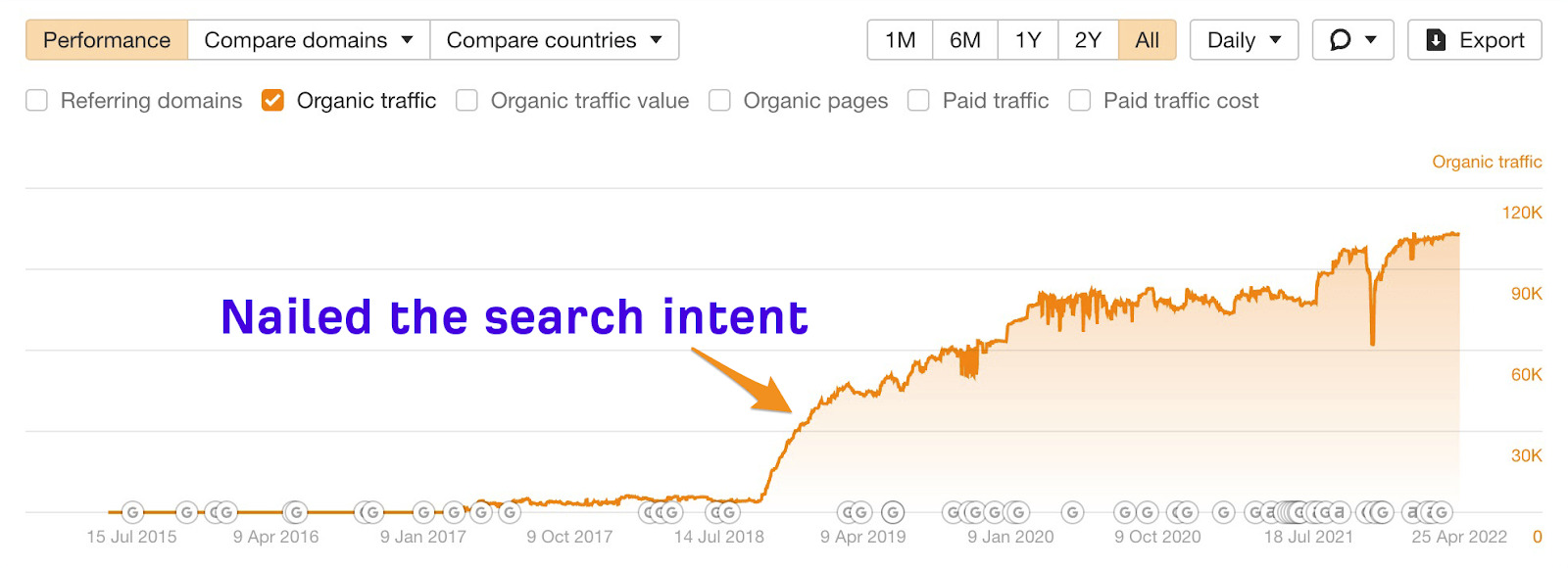In this section, I will cover some of the most important things you should look after to rank higher on the SERPs (search engine results pages) and attract more clicks to your content.
Note: I’ll talk about known ranking factors and factors that can increase your SERP visibility and, consequently, attract more site visitors.
Search intent
Search intent refers to the reason behind the search. It’s one of the strongest ranking factors.
Utilizing search intent in SEO is about discovering what searchers want to get when they plug in a search query and then providing that information.
Search intent is arguably the most important factor for on-page SEO. After all, providing searchers with relevant and useful information is what search engines need to do every second.

Organic traffic to one of our pages before matching search intent and after.
Optimizing your content for search intent comes down to looking at the search result pages for a particular query and identifying the three Cs of search intent:
- Content type – What is the dominating type of content? Is it a blog post, product page, video, or something else?
- Content format – Some common formats include how-to guides, list posts, reviews, comparisons, etc.
- Content angle – The unique selling point of the content piece, e.g., “best,” “cheapest,” and “for beginners.”
Once you identify the three Cs of search intent, you should have a pretty good idea of what type of content Google “recommends” to its users for particular search queries.
Recommended reading: Searcher Intent: The Overlooked ‘Ranking Factor’ You Should Be Optimizing For
Content quality
Search intent is critical, but utilizing it won’t be enough to create “useful and compelling content.” You also need to take care of your content’s quality. Here’s what Google has to say about what it looks for in content:

It seems as though Google aims to embed the same attributes that readers value in any piece of content in its algorithms. And according to Google, it’s content that’s:
- Easy to read.
- Clearly organized.
- Fresh.
- Unique.
URLs
URLs are a small ranking factor. They bear so little weight in ranking websites that Google’s John Mueller said they are overrated in SEO and that people shouldn’t worry about them.
However, Google’s SEO guidelines mention URLs as something you should optimize. But you should do it for the user and not for Google.
This is because the user can see the URL both in the address bar and on the SERPs. And based on that information, users a) can choose to click on some results over the others and b) know where they are on the website.




